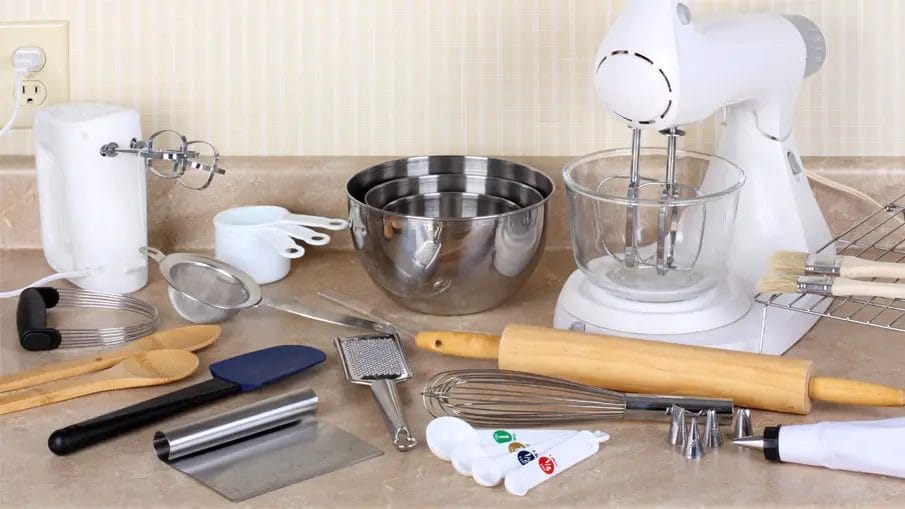Selecting kitchen appliances is an important task that requires consideration of several factors including price, functionality, power, and frequency of use. A common conundrum faced by many is the choice between a hand mixer and a stand mixer. Both offer unique benefits and disadvantages and your decision should align with your personal cooking habits and preferences.
Hand Mixer: A Staple for Simple Mixing Tasks
Hand mixers are common, basic kitchen appliances, usually acquired before upgrading to a more advanced tool like the stand mixer.
Pros of a Hand Mixer:
- Affordability: Hand mixers are typically cheaper than stand mixers.
- Easy to Clean: A hand mixer’s simplicity aids in effortless cleaning.
- Space-Saving: Hand mixers require minimal storage space, perfect for small kitchens.
- Ideal for Simple Tasks: Hand mixers are best suited for whipping cream, egg whites, or mixing a small batch of mashed potatoes.
- Versatility: They can be used in any bowl due to their portability.
Cons of a Hand Mixer:
- Limited Power: Hand mixers have smaller motor and torque capacities than stand mixers, making them inadequate for heavy-duty tasks like mixing firm doughs.
- Lack of Stability: Unlike a stand mixer, you have to hold onto the bowl and operate the hand mixer simultaneously, which could be inconvenient.
Stand Mixer: A Powerhouse for Heavy-Duty Mixing
Stand mixers, on the other hand, offer a hands-free operation, allowing you to switch it on and let it do the work.
Pros of a Stand Mixer:
- Powerful: Stand mixers can handle thicker doughs, making them a valuable asset for baking enthusiasts.
- Advanced Features: Some models offer programmable settings, automatic stops, timers, and come with various attachments.
- Efficient: The machine’s sturdy structure ensures a smooth, mess-free operation.
- Hands-Free: Its fixed position negates the need for you to hold the bowl or move the mixer around.
Cons of a Stand Mixer:
- Expensive: Stand mixers are generally more expensive than hand mixers.
- Space-consuming: They require more storage space, which might be a concern for smaller kitchens.
Hand Mixer vs Stand Mixer: The Final Verdict
The mixer that you opt for will largely depend on the frequency of use, mixing requirements, kitchen space, and your budget. If you frequently bake and mix heavy doughs, a stand mixer could be a worthy investment. Conversely, if you seldom bake and primarily require a mixer for smaller, simpler tasks, a hand mixer will suffice.
Given their different functions, having both in your kitchen could prove beneficial, using the stand mixer for heavy-duty tasks and the hand mixer for quick, simple tasks. However, due to financial constraints, this may not be feasible for everyone.
Before making a decision, reflect on your cooking habits. If you haven’t needed a stand mixer thus far, it might not be the best investment. Conversely, if you often find yourself manually mixing ingredients because your hand mixer lacks power, it might be time to consider a stand mixer.
Regardless of the choice you make, both hand mixers and stand mixers serve a purpose in the kitchen, each aiding in specific cooking tasks to make your culinary journey a delightful experience.




